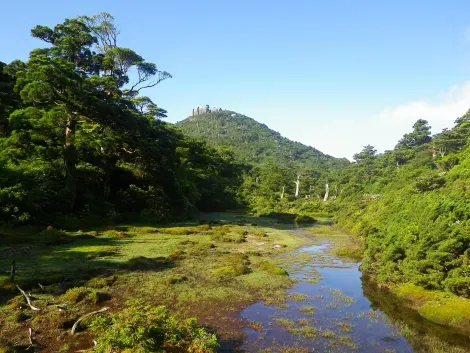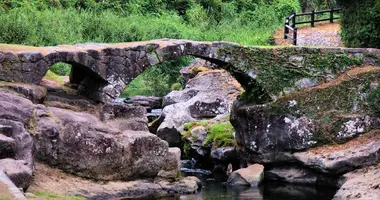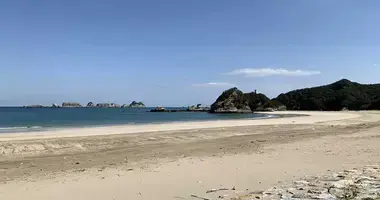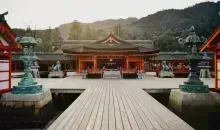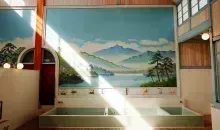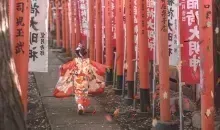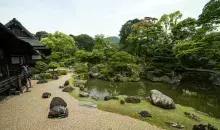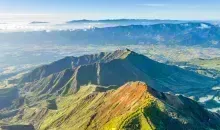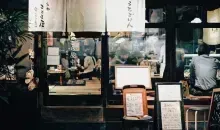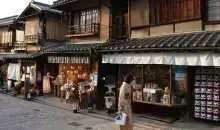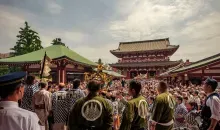Yakushima Island 屋久島
Hiking in Yakushima
Subtropical and rainy, Yakushima is home to a special vegetation that attracts hikers: thousands-of-years-old cedars, thought to be the oldest trees in the country and the inspiration for the forest in Princess Mononoke by Hayao Miyazaki. Discover this amazing island.
Yakushima, The rainforest of Japan
Yakushima is a small island of 500 km2, located in the Osumi islands in the East China Sea, south of Kyushu. To get to Yakushima, you will need to travel by boat; however, the city you are visiting will determine the port.
Yakushima island has two small ports, Miyanoura in the north and that of Anbo in the east. In all, the island's population is around 13,000 people.
The Hiking Routes of Yakushima
Yakushima is primarily for hikers and lovers of the wilderness (a rarity in Japan...) and part of its botanical heritage is classified by Unesco: its famous giant cedars, nicknamed yakusugi (Yakushima and sugi, cedar).
The shortest path to admire them: Yakusugi Land, a protected forest accessible via an easy and marked trail, declined in several forms (30 min to 3 hrs routes - 300 yen, 9am - 5pm., access by bus from Anbo).
But courageous walkers will prefer the Shiratani-Unsuikyo-tozanguchi path: loop circuits start from the foot of the hill (taking 3 to 6 hrs) that allow you to approach the supreme beauty of the Yakushima cedars while treading through a forest that inspired the animated feature film Princess Mononoke by Hayao Miyazaki (access from Miyanoura, by bus 40 min / 530 yen, entry 300 yen).
For experienced hikers, it takes around 8 hours there and back (about 20 km) to stride along the Arakawa-tozanguchi, but the reward is worth the effort: it leads to the famous Jomon-sugi, a huge yakusugi of a venerable age (over 3,000 years) which dates back to the Jomon era (15,000 to 300 BC.). Note that as this star cedar attracts many tourists, the road leading to it is closed to vehicles from March to November (except for the Arakawa Bus, 850 yen).
Even more steep and physical, the first hiking trail from Yakushima, the Yodogawa-tozanguchi, climbs the side of Mount Miyanoura-dake (1 935 m). A difficult route, but away from the hordes of walkers, it offers fabulous views of the island and the Pacific Ocean (return journey in 7hrs, 2 buses per day lead to the Yodogawa departure point from Anbo: 1hr, 910 yen).
You can also take your time - and avoid being caught out by the sunset - by spending the night in one of the yama-goya (shelters) that overlook the Jomon-sugi. There are six free mountain huts.
Yakushima Beaches and Wildlife
Back from hiking, the beaches of Yakushima are all set to rest tired legs, and for sunbathing. The beach of Isso stretches along the north coast, easily accessible from Miyanoura, but the curious will prefer Nagata Beach (West Coast): that is in a beautiful setting where loggerhead and green turtles come to lay their eggs between May and July. It is an important nesting site for loggerhead turtles in the North Pacific.
Be careful not to disturb the process or threaten the survival of the species, it is not advised to approach these them or frequent the beach at night - there is a risk of crushing eggs or newborns. To learn more about the turtles on Yakushima or to observe them safely, the Umigame Kan is both a museum and environmental center in the middle of the Nagata Range (open Wed-Mon, 9am - 5pm).
Besides turtles, it is not uncommon to come across Japanese macaques, as well as Sika deer. Tanuki (Japanese raccoons), as well as Japanese weasels also populate these forests.
Yakushima's Hot Springs
Located in the center of the volcanic ridge that crosses the island of Kyushu (the island with the most hot springs in the country: Beppu is the Japanese hydrotherapy capital), Yakushima is not lacking in onsen. Several pools are coastal, giving bathers a beautiful seascape, the body immersed in hot water... and mixed. Konyoku onsen (for men and women) were also the norm before the Puritan West obliged Japan to seperate the sexes... fans can head to the south coast of the island, around the small port of Onoaida, where there are charming outdoor baths, built in the rock formations. Please note: some are only accessible at low tide!
To test one of these natural baths directly in the rocks, we recommend the Hirauchi Kaichu onsen. Nearby is also the Yudomari onsen, which offers the same type of baths.


















